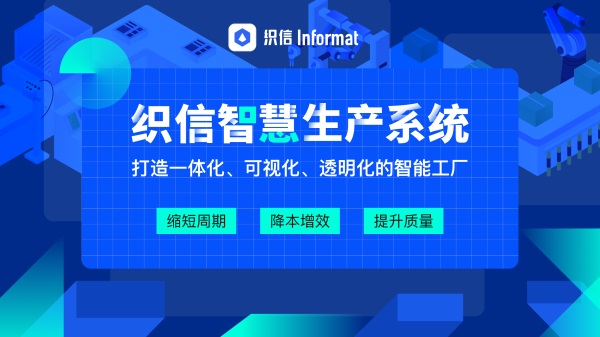mes制造执行系统的现状

MES制造执行系统的现状可以概括为:智能化发展、数据驱动、集成化、用户友好性、市场需求增加。智能化发展是MES系统现状中最为显著的一点,现如今的MES系统已经不再是简单的生产管理工具,而是通过人工智能和机器学习等技术,实现了智能化的生产调度和决策支持。例如,智能化的MES系统可以自动分析生产数据,预测设备故障,从而有效减少停机时间,提高生产效率。此外,数据驱动也是MES系统的一大特点,通过对生产数据的实时采集和分析,企业可以更好地掌握生产动态,优化生产流程。集成化方面,MES系统与ERP、PLM等系统的集成度越来越高,打通了企业各个环节的数据链路。用户友好性方面,现代MES系统注重界面的简洁和操作的便捷,提升了用户体验。随着工业4.0和智能制造的发展,市场对MES系统的需求也在不断增加。

一、智能化发展
MES制造执行系统的智能化发展是当前的一个重要趋势。随着人工智能、机器学习、大数据分析等先进技术的引入,MES系统的功能已从传统的生产管理扩展到智能化的生产调度和决策支持。例如,智能化的MES系统能够通过对历史生产数据的分析,预测设备的运行状态和潜在故障,从而提前安排维护计划,减少意外停机时间,提高设备利用率。此外,智能化的MES系统还可以通过对生产流程的实时监控和分析,优化生产排程,提高生产效率和产品质量。
二、数据驱动
在现代制造业中,数据被视为企业的重要资产。MES系统通过对生产数据的实时采集、存储和分析,为企业提供了全面、准确的生产信息。这种数据驱动的方式,使得企业能够更好地掌握生产动态,及时发现和解决生产中的问题。例如,通过对生产数据的分析,企业可以识别生产瓶颈,调整生产流程,提高生产效率。数据驱动的MES系统还可以与其他企业管理系统(如ERP、PLM等)集成,形成一个完整的企业数据链路,支持企业的全面数字化转型。
三、集成化
集成化是MES系统发展的另一个重要方向。现代MES系统不仅需要管理生产过程,还需要与其他企业管理系统(如ERP、PLM、SCM等)无缝集成。这种集成化的MES系统,可以实现企业各个环节的数据联通,形成一个完整的企业数据链路,提高企业的整体运营效率。例如,通过与ERP系统的集成,MES系统可以实时获取生产订单信息,安排生产计划;通过与PLM系统的集成,MES系统可以获取产品设计数据,指导生产过程。集成化的MES系统,不仅提高了企业的运营效率,还为企业的数字化转型提供了有力支持。
四、用户友好性
用户友好性是现代MES系统设计中的一个重要考虑因素。随着MES系统功能的不断扩展,其操作界面和使用方式也变得越来越复杂。为了提升用户体验,现代MES系统在界面设计和操作方式上进行了大量改进,使其更加简洁、直观和易用。例如,现代MES系统采用了图形化的界面设计,通过图表、仪表盘等方式,直观展示生产数据和状态;在操作方式上,现代MES系统支持触屏操作、语音指令等多种交互方式,方便用户进行操作。用户友好性的提升,使得MES系统在企业中的推广和应用更加顺利。
五、市场需求增加
随着工业4.0和智能制造的不断推进,市场对MES系统的需求也在不断增加。企业为了提高生产效率、降低生产成本、提升产品质量,需要引入先进的生产管理工具,而MES系统正是满足这些需求的重要选择。例如,通过引入MES系统,企业可以实现生产过程的全面数字化管理,优化生产流程,提高生产效率和产品质量。此外,随着市场竞争的加剧,企业对生产管理的要求也越来越高,这进一步推动了MES系统的市场需求。
六、织信的创新应用
作为基石协作旗下的产品,织信在MES制造执行系统的创新应用方面也有显著成就。织信通过提供灵活的低代码开发平台,使企业能够快速构建和部署定制化的MES解决方案。这种低代码平台不仅降低了MES系统的开发和维护成本,还提高了系统的灵活性和适应性。例如,企业可以根据自身的生产管理需求,快速定制和调整MES系统的功能和流程,满足不同的生产场景和业务需求。织信的创新应用,为企业的数字化转型提供了强有力的支持。
织信官网: https://informat.cn;
七、技术挑战与解决方案
尽管MES系统在智能化、数据驱动、集成化、用户友好性等方面取得了显著进展,但在实际应用中仍面临一些技术挑战。例如,MES系统需要处理大量的实时数据,这对系统的性能和稳定性提出了很高的要求。为了应对这些挑战,现代MES系统采用了分布式架构、云计算、大数据等先进技术,提高系统的性能和稳定性。此外,为了确保数据的安全性和可靠性,MES系统还采用了多层次的数据备份和恢复机制,确保生产数据的完整性和可用性。
八、行业应用案例
MES系统在不同行业中的应用案例,展示了其在实际生产管理中的价值。例如,在汽车制造行业,MES系统通过对生产线的实时监控和调度,优化了生产排程,提高了生产效率和产品质量。在电子制造行业,MES系统通过对生产数据的实时采集和分析,及时发现和解决生产中的问题,减少了生产故障和废品率。在食品饮料行业,MES系统通过对生产过程的全面追溯和监控,确保了产品的质量和安全。这些行业应用案例,展示了MES系统在不同行业中的广泛应用和显著成效。
九、未来发展趋势
随着技术的不断进步,MES系统的未来发展趋势也逐渐明晰。智能化、数据驱动、集成化、用户友好性、市场需求增加等现状将继续推动MES系统的发展。在未来,MES系统将更加智能化和自动化,通过人工智能和机器学习等技术,实现更高水平的生产调度和决策支持。此外,随着物联网技术的发展,MES系统将进一步扩展其数据采集和分析能力,实现生产过程的全面数字化和智能化。未来的MES系统,将在智能制造和工业4.0的发展中发挥更加重要的作用。
十、总结与展望
MES制造执行系统的现状,展示了其在智能化发展、数据驱动、集成化、用户友好性、市场需求增加等方面的显著成就。通过不断引入和应用先进技术,MES系统已经从传统的生产管理工具,发展成为智能化的生产调度和决策支持系统。随着技术的不断进步和市场需求的不断增加,MES系统将在未来的发展中,发挥更加重要的作用,推动企业的数字化转型和智能制造的发展。对于企业来说,引入和应用先进的MES系统,将是提升生产效率、降低生产成本、提升产品质量的关键途径。
相关问答FAQs:
FAQs about the Current State of MES (Manufacturing Execution Systems)
1. What are the key trends in the current MES market?
The Manufacturing Execution System (MES) market is experiencing a rapid evolution, driven by several key trends. One prominent trend is the increasing integration of MES with other enterprise systems, such as Enterprise Resource Planning (ERP) and Supply Chain Management (SCM) systems. This integration facilitates seamless data flow across different levels of manufacturing operations, leading to enhanced efficiency and better decision-making.
Another significant trend is the adoption of cloud-based MES solutions. Cloud technology offers scalability, flexibility, and cost-efficiency that traditional on-premises systems often lack. By leveraging cloud infrastructure, manufacturers can easily scale their operations, access real-time data from anywhere, and reduce the total cost of ownership.
Additionally, the rise of Industrial Internet of Things (IIoT) and Industry 4.0 initiatives is driving the evolution of MES. IIoT enables real-time data collection and analysis from connected devices on the shop floor, providing valuable insights into production processes. MES systems are increasingly incorporating IIoT capabilities to offer advanced analytics, predictive maintenance, and enhanced visibility into manufacturing operations.
Lastly, there is a growing emphasis on user-friendly interfaces and mobile accessibility. Modern MES solutions are designed with intuitive dashboards and mobile apps to allow operators and managers to access critical information and make informed decisions on the go.
2. How are MES systems addressing the challenges of Industry 4.0?
Industry 4.0 represents a transformative shift in manufacturing, characterized by the integration of digital technologies, automation, and data analytics. MES systems are playing a crucial role in addressing the challenges associated with Industry 4.0 by providing solutions that align with its principles.
One of the primary challenges of Industry 4.0 is managing and analyzing vast amounts of data generated by connected devices and sensors. MES systems are equipped with advanced data analytics and visualization tools to process this data effectively. They enable manufacturers to monitor real-time performance, identify trends, and make data-driven decisions to optimize production processes.
Another challenge is ensuring interoperability between diverse systems and technologies. MES systems are increasingly designed to be compatible with various Industry 4.0 standards and protocols. This interoperability ensures that MES can seamlessly integrate with other technologies, such as automation systems, robotics, and analytics platforms, facilitating a cohesive and efficient manufacturing ecosystem.
Additionally, MES systems are addressing the need for enhanced flexibility and adaptability in production. Industry 4.0 emphasizes the importance of agile and responsive manufacturing processes. MES systems support this by enabling dynamic scheduling, real-time adjustments, and adaptive workflows, allowing manufacturers to quickly respond to changes in demand and production requirements.
3. What benefits do modern MES systems offer compared to traditional systems?
Modern MES systems provide several advantages over traditional systems, reflecting advancements in technology and evolving manufacturing needs. One key benefit is improved real-time visibility into production operations. Modern MES solutions offer real-time monitoring and data collection from various sources, providing manufacturers with up-to-date information on production status, quality, and performance. This visibility helps in identifying and addressing issues promptly, reducing downtime and improving overall efficiency.
Another significant advantage is enhanced data analytics capabilities. Modern MES systems are equipped with advanced analytics tools that enable manufacturers to gain deeper insights into their operations. These tools can perform complex data analysis, generate predictive insights, and support data-driven decision-making, which is often not possible with traditional systems.
In addition, modern MES solutions offer greater scalability and flexibility. Cloud-based MES systems, in particular, provide the ability to scale operations up or down based on business needs. This scalability is coupled with the flexibility to integrate with other enterprise systems and technologies, facilitating a more cohesive and adaptable manufacturing environment.
Furthermore, the user experience has been greatly improved in modern MES systems. Intuitive interfaces, customizable dashboards, and mobile accessibility enhance user interaction and make it easier for operators and managers to access and utilize system features. This focus on user experience contributes to more efficient operations and better overall satisfaction with the MES system.
版权声明:本文内容由网络用户投稿,版权归原作者所有,本站不拥有其著作权,亦不承担相应法律责任。如果您发现本站中有涉嫌抄袭或描述失实的内容,请联系邮箱:hopper@cornerstone365.cn 处理,核实后本网站将在24小时内删除。
立即开启你的数字化管理
用心为每一位用户提供专业的数字化解决方案及业务咨询




